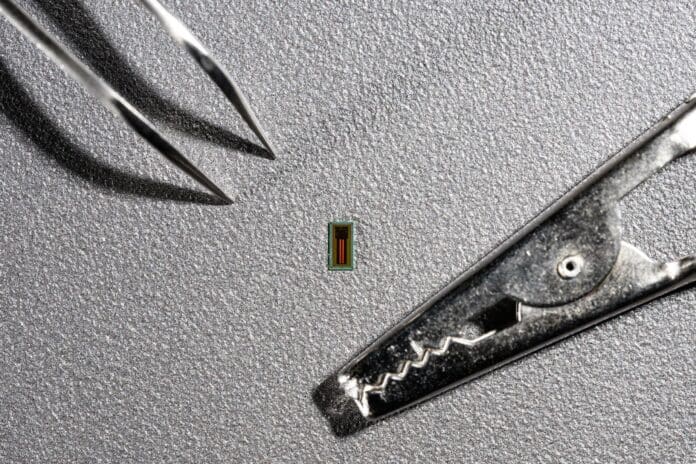This post is also available in:
 עברית (Hebrew)
עברית (Hebrew)
A miniscule device capable of translating thoughts into text was developed by researchers from EPFL, representing a groundbreaking advancement in brain-machine interfaces (BMIs). This innovative Miniaturized Brain-Machine Interface (MiBMI) is a major leap forward for individuals with severe motor impairments, enabling them to communicate more effectively.
The MiBMI is a compact silicon chip designed to decode complex neural signals and convert them into readable text with high accuracy and low power consumption. This development could be an advancement towards practical, implantable solutions that can greatly improve communication for individuals with severe motor impairments, according to Interesting Engineering.
This new chip differs significantly from traditional BMIs, which are often large, energy-intensive, and have limited functionality. The MiBMI is both efficient and versatile, and its design aims to overcome these limitations. To translate thoughts into text, the patient is instructed to think about writing down what they want to say. The chip then decodes neural signals associated with imagined hand movements, when electrodes implanted in the brain capture these signals, and the MiBMI processes them in real-time, converting the intended hand movements into digital text.
The MiBMI has already demonstrated impressive results. In testing, the chip processed data from live recordings, and achieved 91% accuracy in converting handwriting activity into text. While it currently decodes up to 31 characters, the team is optimistic about expanding this capability to 100 characters as more comprehensive handwriting datasets become available.
When implanted, the system is comprised of only two tiny chips, measuring at a mere 8mm² combined. This, along with its minimal power requirements, makes it perfect for implantation, as it is minimally invasive and ensures safety and practicality for both clinical and real-world uses, as stated in the press release. In the future, this chip could mark a dramatic improvement in the lives of patients with various neurological disorders, such as ALS, paralysis due to spine injuries, and locked-in syndrome, among others.
The development was presented at the International Solid-State Circuits Conference, The findings were reported in the IEEE Journal of Solid-State Circuits.


























